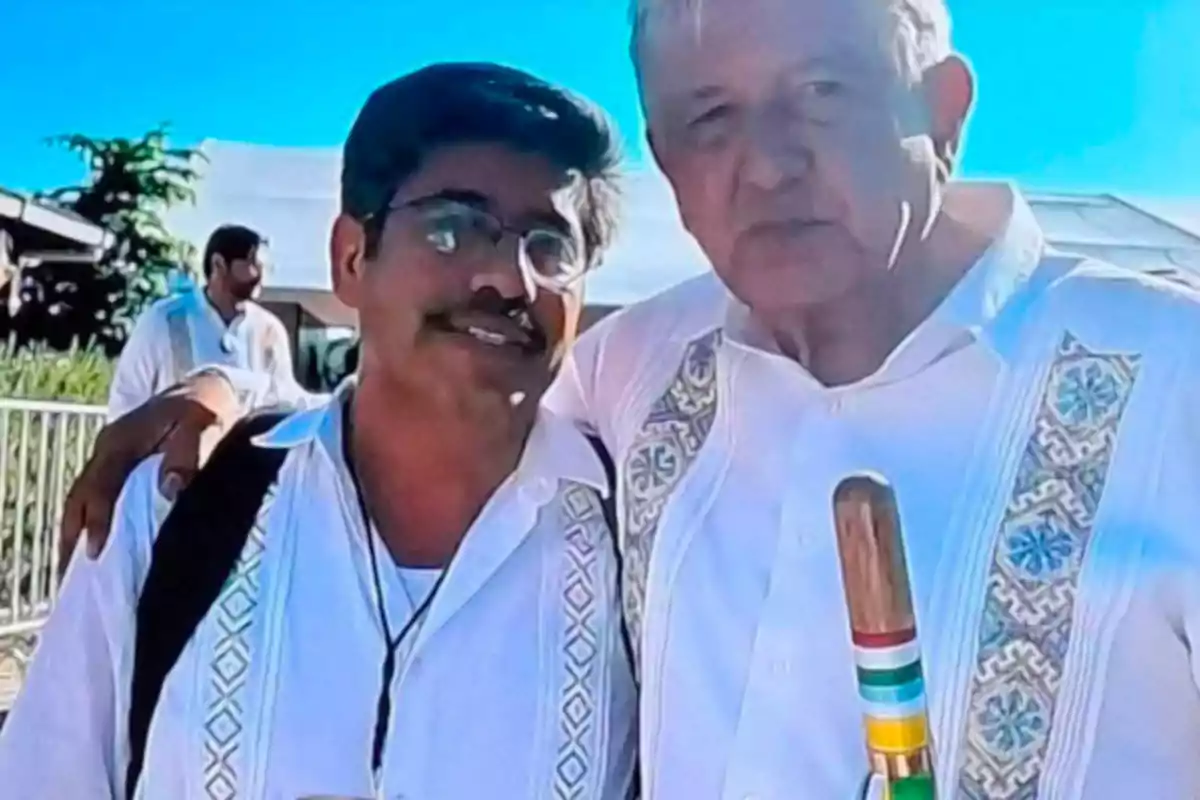
Hugo Aguilar and AMLO: the connection that casts doubt on the independence of the judiciary
During AMLO's administration, Hugo Aguilar served as the coordinator of indigenous consultations for projects such as the Tren Maya
Hugo Aguilar Ortiz, a Mixtec attorney originally from Oaxaca, is emerging as the next president of the Supreme Court after obtaining the highest number of votes in the recent judicial elections.
His rise has caused concerns due to his closeness to former presidentAndrés Manuel López Obrador and his involvement in controversial government projects.

Ties to the 4T and megaprojects
During AMLO's administration, Aguilar played a key role in coordinating indigenous consultations for projects such as the Tren Maya and the Interoceanic Corridor. These consultations have been criticized for not meeting international standards of free, prior and informed consent.
His closeness to the previous administration and his role in promoting these projects have led to questions about his independence and ability to lead the SCJN impartially.

On social media, numerous voices have expressed concern about Aguilar's loyalty to López Obrador, pointing out that he prioritized the former president's interests over those of indigenous communities.
These criticisms reflect a broader concern about the politicization of the judiciary and Morena's influence in the selection of judges and magistrates.
Toward an identity policy
Aguilar will be the second indigenous president of the SCJN since Benito Juárez, something that the ruling party repeats every day in the morning press conference. According to them, his appointment represents a milestone in the representation of indigenous peoples in the country's highest court.
However, his career and political tieshave raised doubts among much of the population. Even from Mixtec indigenous groups, the people he comes from, they warn that he will not defend indigenous rights.

Questions about legitimacy
There are numerous questions about the legitimacy of this vote. There was very low turnout in the judicial elections, with only 13% of the electorate. There were also complaints about the distribution of "cheat sheets" with voting instructions by Morena supporters.
These situations fuel suspicions about the legitimacy of the process and the autonomy of the new members of the SCJN.
On September 1, Hugo Aguilar will assume the presidency of the SCJN in a context of growing concern about the independence of the judiciary. For many, Morena has already gained control of all three branches of government and will have no governmental checks and balances.
More posts: